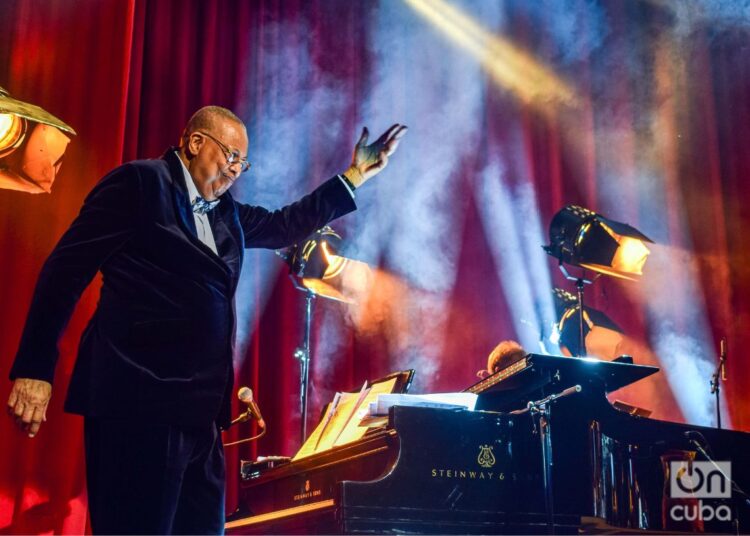Chucho Valdés turns 83. Celebrating another birthday goes beyond the celebration of existence, accumulated experience and longevity; it is also a reason to review a creative work as multifaceted as his.
Dionisio Jesús Valdés Rodríguez, Bebo’s son, a long time ago stopped being known by his birth name. The boy who went to see his father work with the great stars of the golden age of Tropicana Cabaret, grew up. He did it, too, hardened by the piano keys, first under the aegis of Bebo, then encouraged by his permanent curiosity and interest in going further.
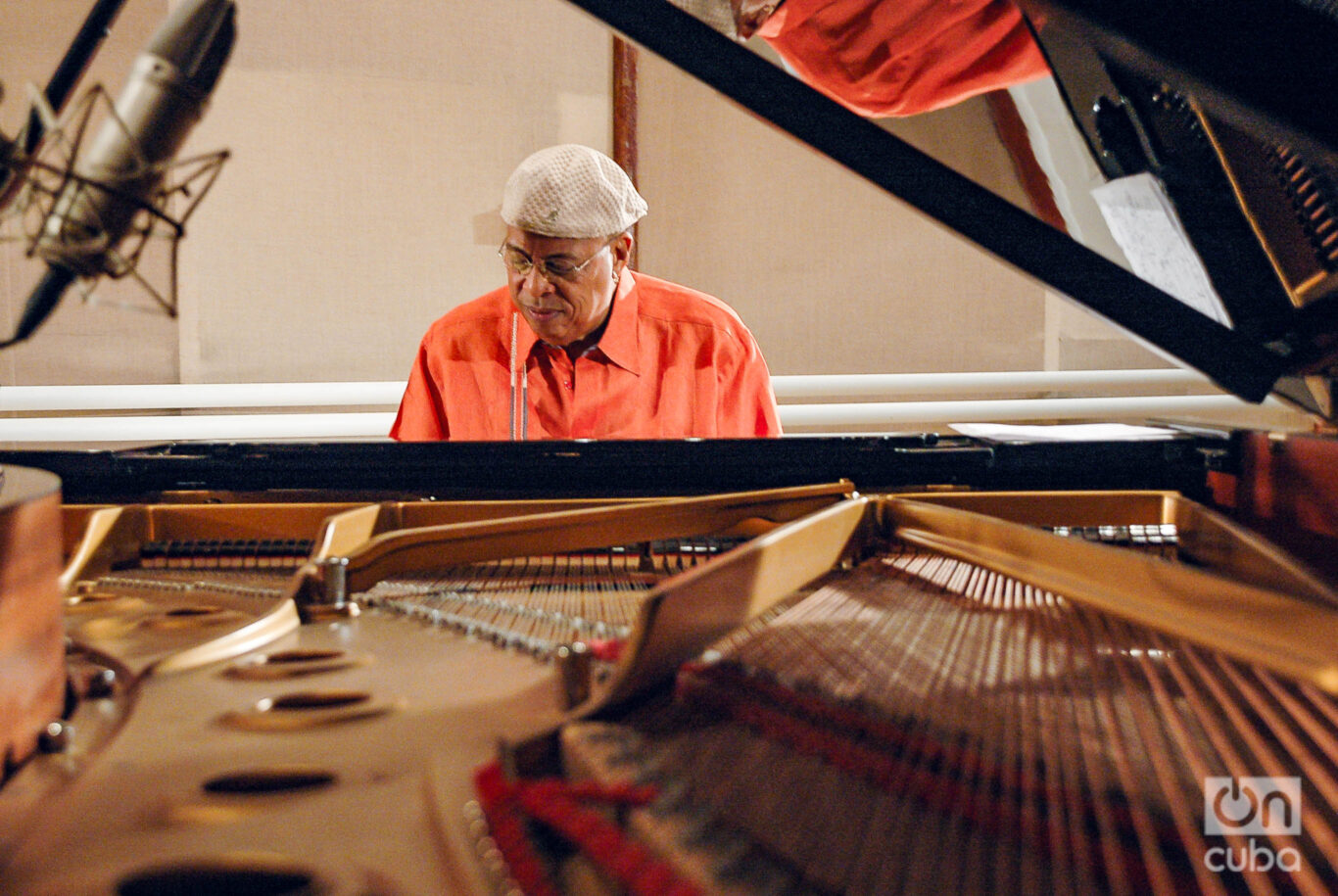
I write these lines as an impromptu, like a composition born without a preconceived plan. One by one these lyrics follow one another, while I remain absorbed by the wonder I have just witnessed: the giant, the king of Cuban jazz, on a piano solo during his first and recent appearance at the Tiny Desk Concerts — published on August 12th —, the thrilling series of concerts on the radio program All Songs Considered on NPR Music.
The corner of that radio office in Washington D.C. where the live session was recorded for years has brought together a diverse audience and shared joy among lovers of good music. That is why seeing Chucho Valdés there — as happened with other Cuban artists before him — provokes at the same time curiosity and certainty that what is seen there is something unique; a complete delight.
Three pieces. With his “Mambo influenciado” and “Ponle la clave,” the maestro demonstrated why he is a virtuoso. He re-adapts his creations, plays with them and exposes his mastery of the art of the piano, a bridge between generations, a reflection of an Afro-Cuban understanding of classical musical expression. With “Impromptu Desk,” Chucho demonstrated the ability to create a musical piece in situ, with an emotional and credible discourse.
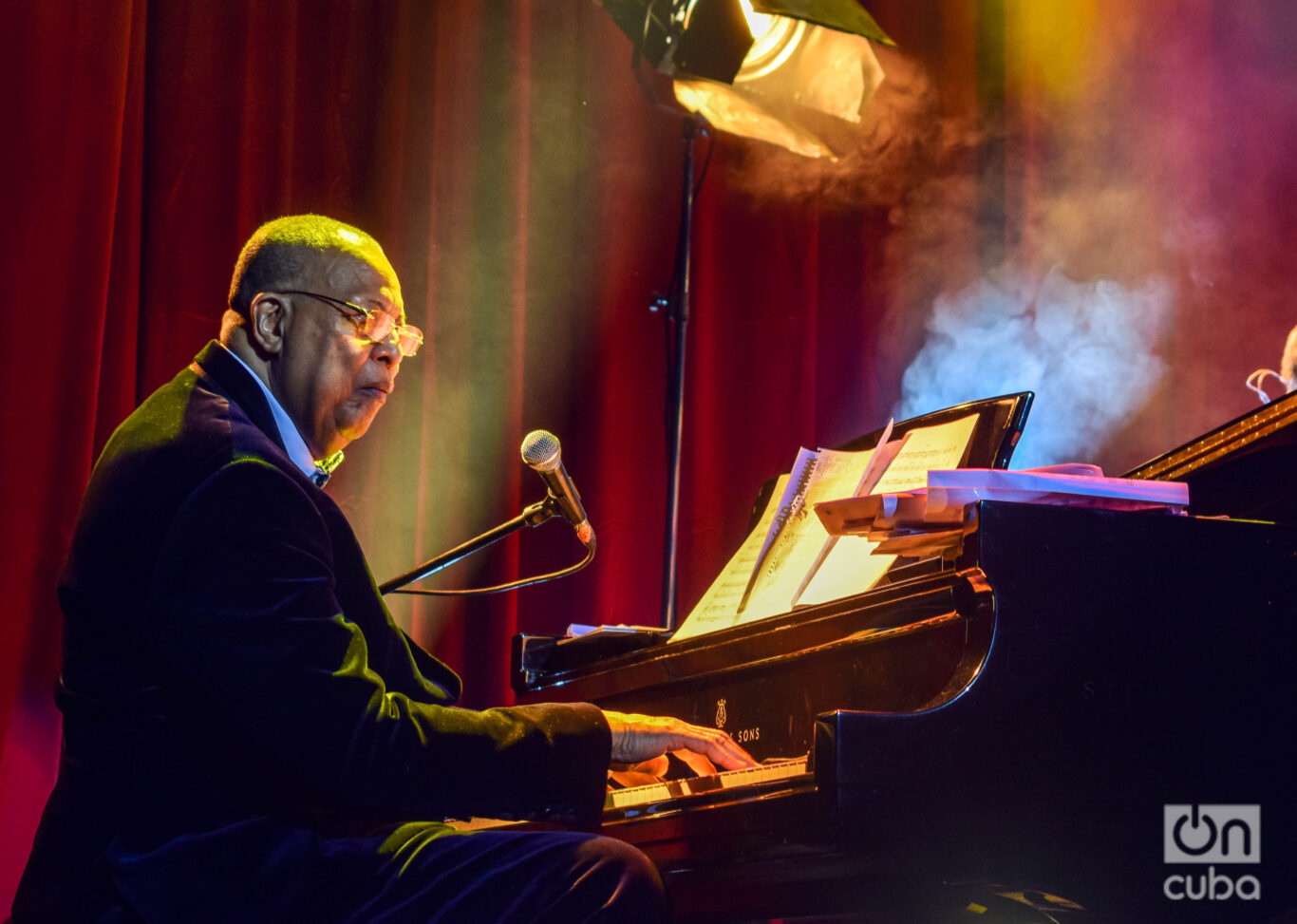
That creation in extremis reminded me of one of the last occasions when I was able to see him, live, playing the piano in Havana. It was August 2017, Grand Theater of Havana. A piano and a man on stage. “Do you see what I have here?” he said, while showing the audience a tiny piece of paper, whose content he immediately went on to explain. “Here I have the first line of each of the compositions that I will play for you tonight,” iconic pieces of the Cuban repertoire, from Lecuona to his own works, “so I know how this begins, but not how it will end. So, if we repeat this concert tomorrow, I assure you that it will not be the same.”
That ended, as Chucho has accustomed his audience, with the conviction that this man is an extraordinary creator, an immense artist.
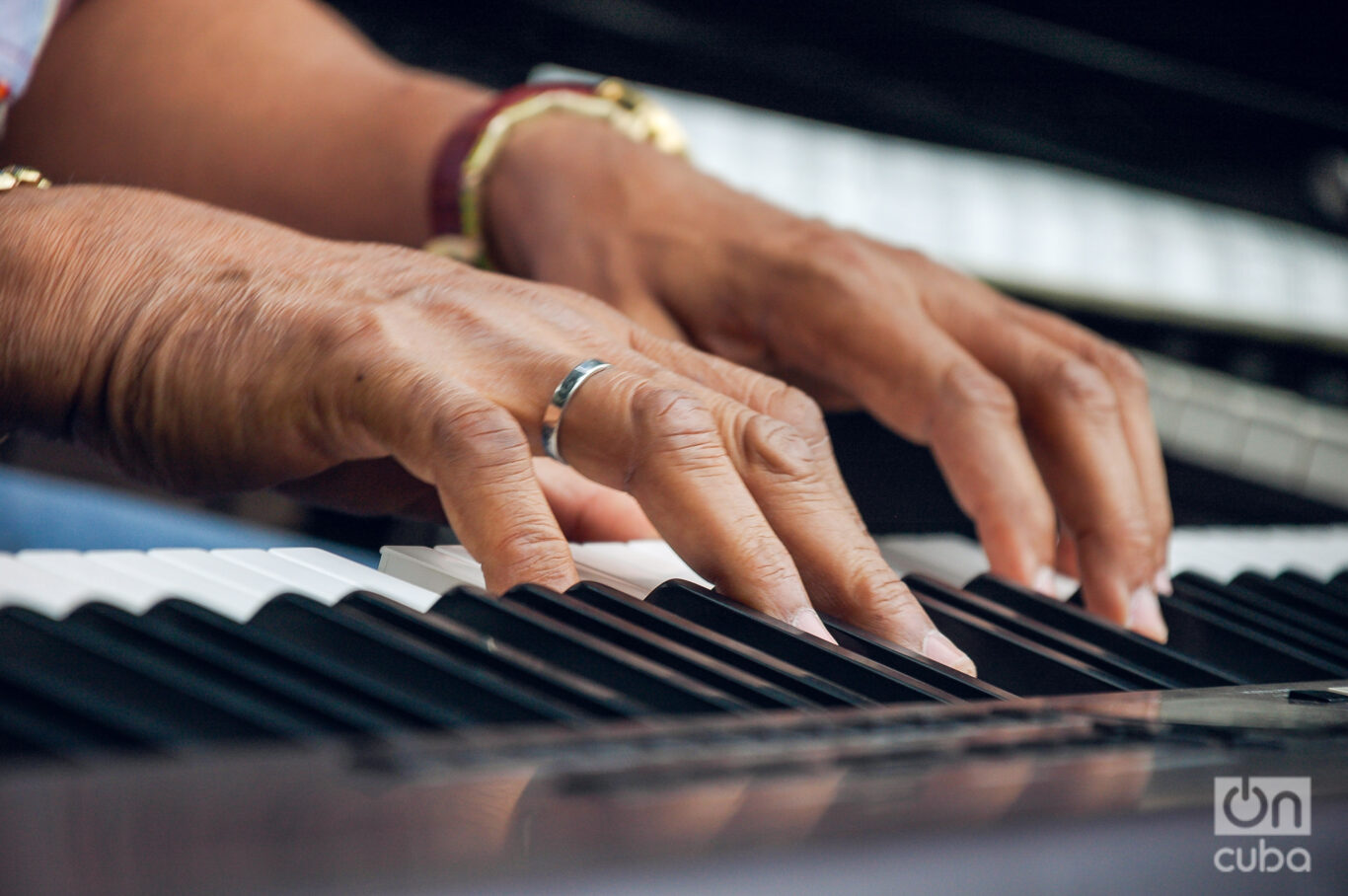
This has been the case in each of the facets he has experienced, whether on piano solo, as an accompanist or in any of the formats that one can imagine (trio, quartet, jazz band…). And there has been that luminous name that is Chucho Valdés, shining alongside the Chinese Lang Lang — one of the best concert pianists in the world —, in a symphonic format in the Plaza de la Catedral, or being the host of international jazz day in Havana in 2017 alongside Herbie Hancock, Esperanza Spalding, Quincy Jones and dozens of great names of the genre in Cuba and the world.
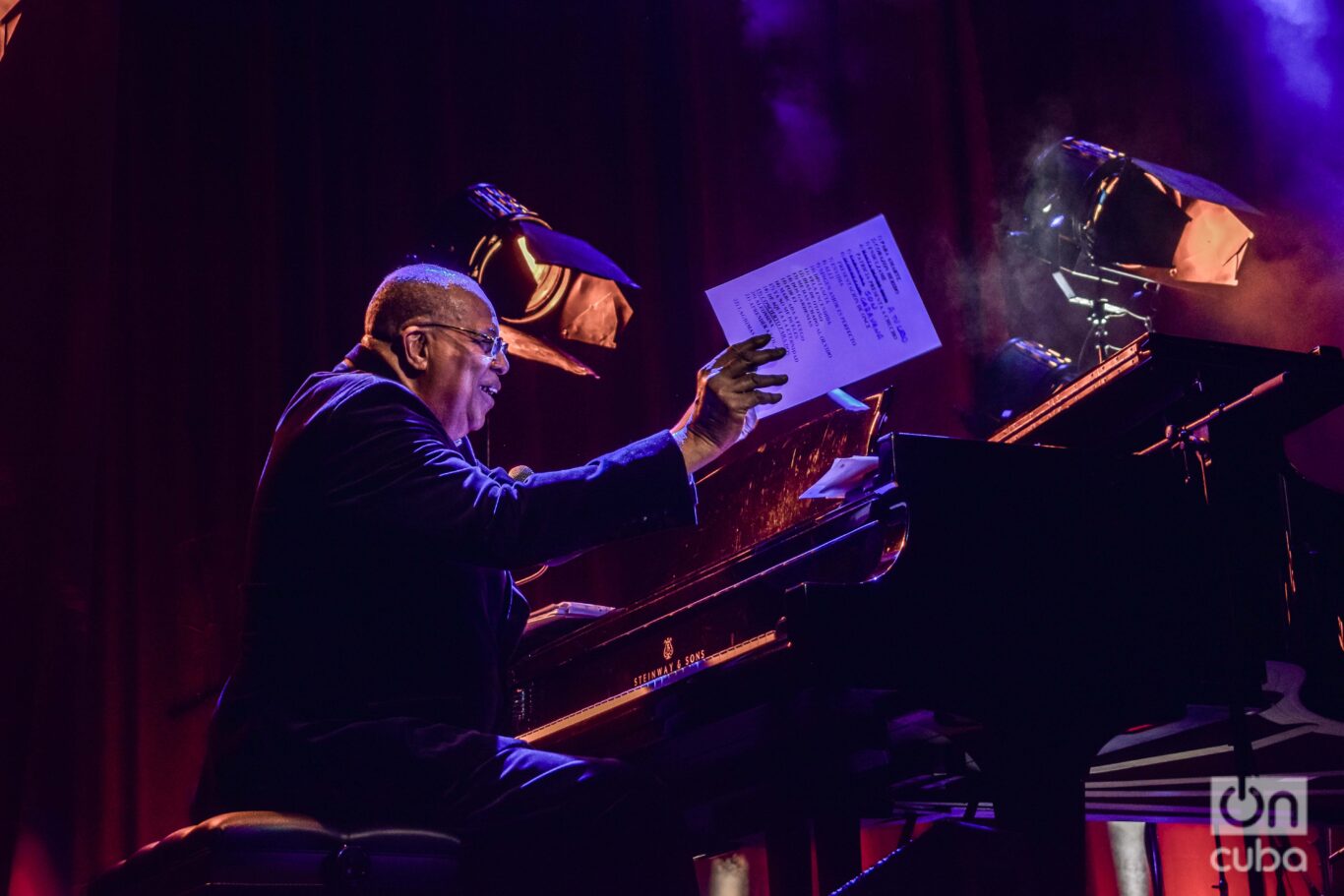
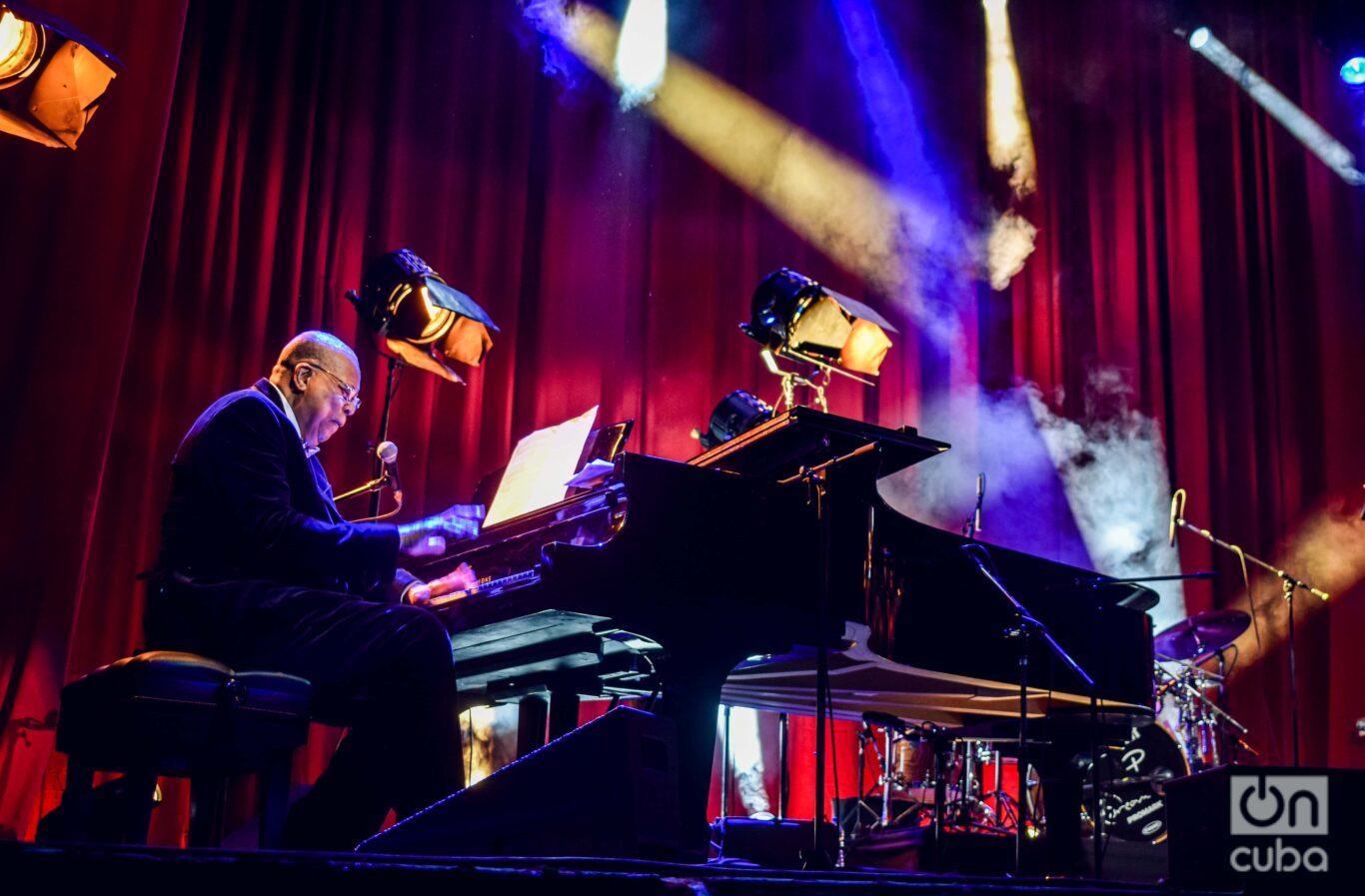
“It was a privilege to see Chucho Valdés play every weekend in a different place for ten Cuban pesos. It was tremendous,” the New York-based Cuban pianist Dayramir González (Havana, 1983), told me in a recent conversation. Like so many musicians of his generation and those who have come after, Dayramir does not escape the influence of Chucho’s piano, of his advanced Afro-Cuban jazz. Nor of the overwhelming history of Irakere.
You cannot think of the character without taking into account the phenomenon he has mobilized, and it is clear that the second cannot be understood without the first. Chucho Valdés and Irakere are an indelible mark on Cuban culture, with all that this implies.
Therefore, when the celebration of the group that Chucho made known in 1973 was announced, the expectation was maximum and the enjoyment of those who have been able to experience it, colossal. That is known. “Irakere 50” is the name of the tour for the five decades of the great phenomenon of Cuban music. That was the union, moreover, of three legends: Chucho, Arturo Sandoval and Paquito D’Rivera.
“It is simple, Sandoval is super-gifted. Paquito, a genius. And it’s not the same thing,” says Chucho Valdés in the documentary “Chucho Valdés featuring Irakere: Latin jazz founders,” by Ileana Rodríguez, about the history and different stages of one of the most pedigreed groups in Cuban music, whose repertoire is still enjoyed today by the most diverse audiences.
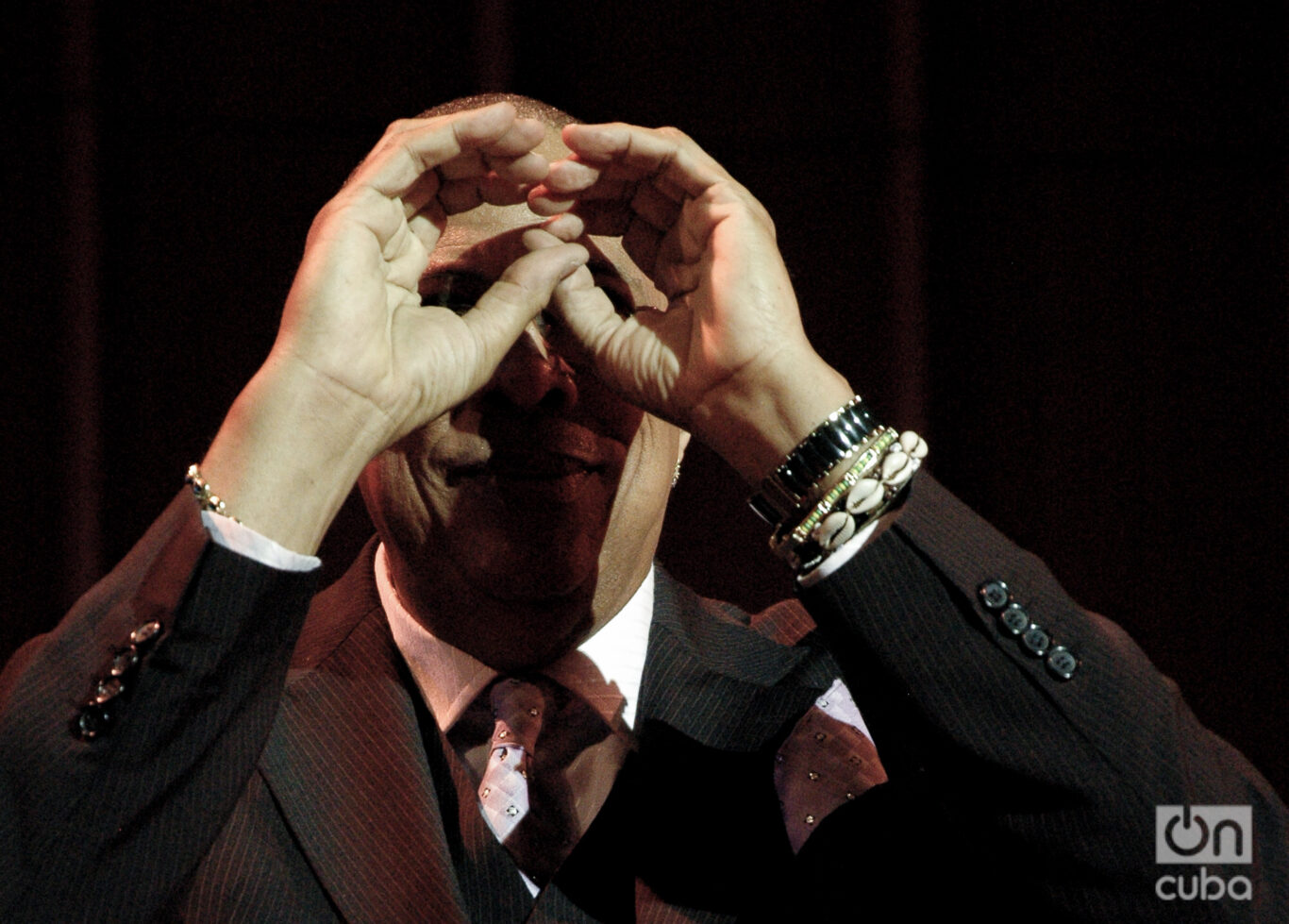
One of the many friends I have had to say goodbye to in recent years, Alejandro García, recently, last August, wrote to me from Séte, in the south of France. “We just saw him and it was great,” he told me, referring to the last concert of Chucho Valdés’ European tour, Irakere 50, in 2024.
Time has followed its course. Today, the album Cuba and Beyond (2024) is a reality, an exquisite hot cake, the latest creation of Chucho Valdés and his current formation, Royal Quartet. “It is the most contemporary version of all my quartets,” said the creator in the making of this album, which he shares with Robeto Jr. Vizcaino on percussion, Horacio “El Negro” Hernández on drums and José A. Gola on bass.
It is a pleasant album. “We have managed,” Chucho warns in the making, “to do a work of evolution on the roots and on the Cuban tradition with elements of jazz music and many harmonic and rhythmic elements of European music as well.”
The definition of this album is “pure Valdés essence,” because, as a creator, Chucho has always dared to go further. It is a material that can be heard as one walks through the streets of Havana: between “Punto cubano,” “Son de almendra,” “Congablues,” “Habanera partida,” that sublime touch of “Mozart a la cubana,” the clear reverence to Chick Corea (1941-2021) with “Armando’s Rhumba,” the affection in “Nosotros” and the bacchanalian “Tatomanía.”
But this is only the most recent stop on Chucho Valdés’ long journey through the paths of music, a unique world that is far from over. For some reason, the winner of the National Music Award (1998) is the most recognized Cuban by the National Academy of Recording Arts and Sciences of the United States. With 7 Grammy Awards and 12 nominations, the list of awards is extensive and he has recently been named NEA Jazz Master 2025 by the National Endowment for the Arts (NEA) of the United States, the highest honor in the field of jazz in that nation.
In short, he is a creator who entered, years ago, that category of living legend of music, something that is not reserved for many. Listening to him and being able to ask ourselves, at his 83 years, what will be the next thing we will enjoy of his art, is a blessed luck.
The legacy remains
“Chucho is a genius,” musicologist Élsida González tells me from the other end of the phone when I tell her the anecdote of the recital at the Grand Theater of Havana, in 2017. In addition to being an admirer of Valdés’ work, as a specialist at Cuba’s Musical Recording and Publishing Enterprise (EGREM) she led an extraordinary project in 2021 in honor of the founder of Irakere on his 80th birthday.
With Los herederos: homenaje a Chucho Valdés e Irakere (EGREM, 2021), Élsida managed to bring together 63 top-notch musicians to cover iconic pieces from the repertoire of the legendary group, which in 2023 celebrated its fifth decade of existence. “The best tribute was to show their heritage and there I was able to bring together musicians who felt like heirs to that legacy, whether they were pianists or not,” she recalls.
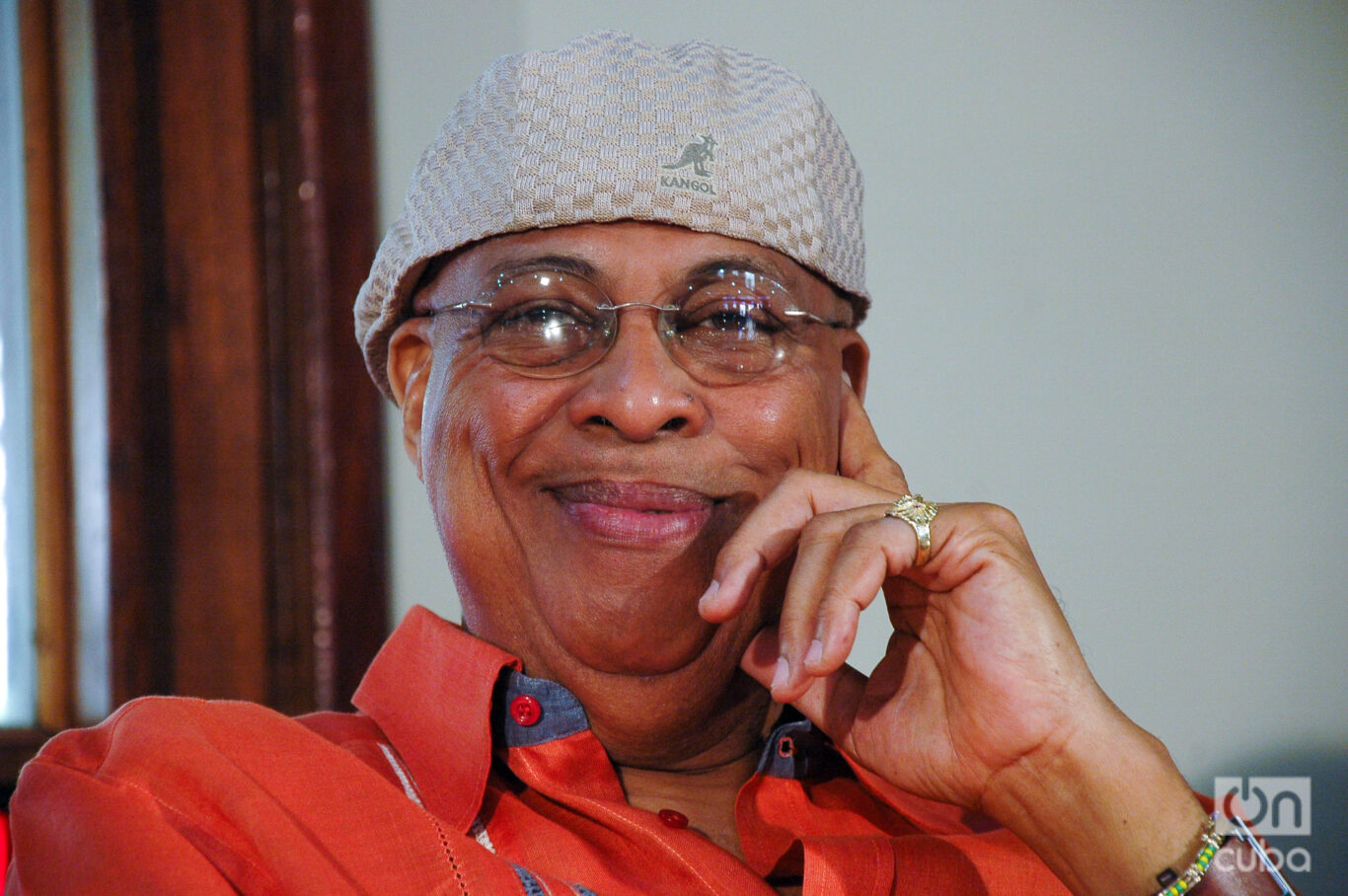
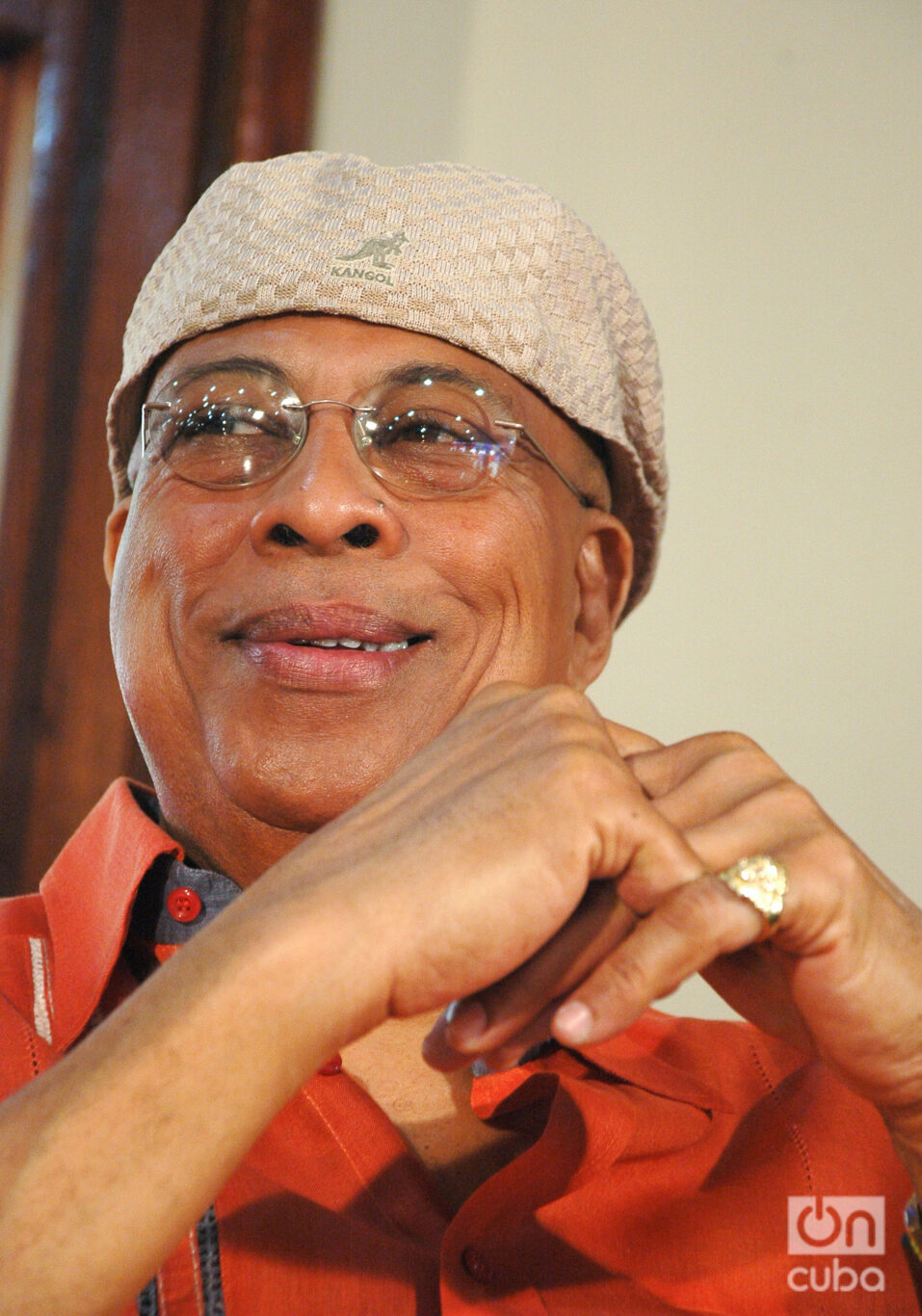
“Chucho Valdés is the most universal living Cuban artist in jazz and the most influential person for later generations. Everyone wants to know what he is doing. He is always on the move, creative, and approaching generations that contribute a lot to him. He is a beacon for Cuban music, but he is a world artist and must be viewed from that perspective,” says the specialist, who has had the opportunity to work with the notable pianist on other recording projects that came out under the EGREM label.
But Élsida González, 70, had a conscious contact with Chucho’s music at a very young age. “My father was a musician, he bought all the records in the world and I am almost sure that in my house, from the first creations, we listened to him. Irakere was founded in 1973; I was a teenager. I am from Santa Clara, but I was able to participate in the concerts they did in Havana and see everything they broadcast on television. Irakere was played a lot on television programs. I have lived, fortunately, through all the stages of a tireless creator.”
Reflecting on Chucho’s creative capacity, Élsida defines him as someone intrepid, who has known how to approach the novelties of each time and “always be up for the challenge, for the young people who accompany him and for him. That is wonderful.”
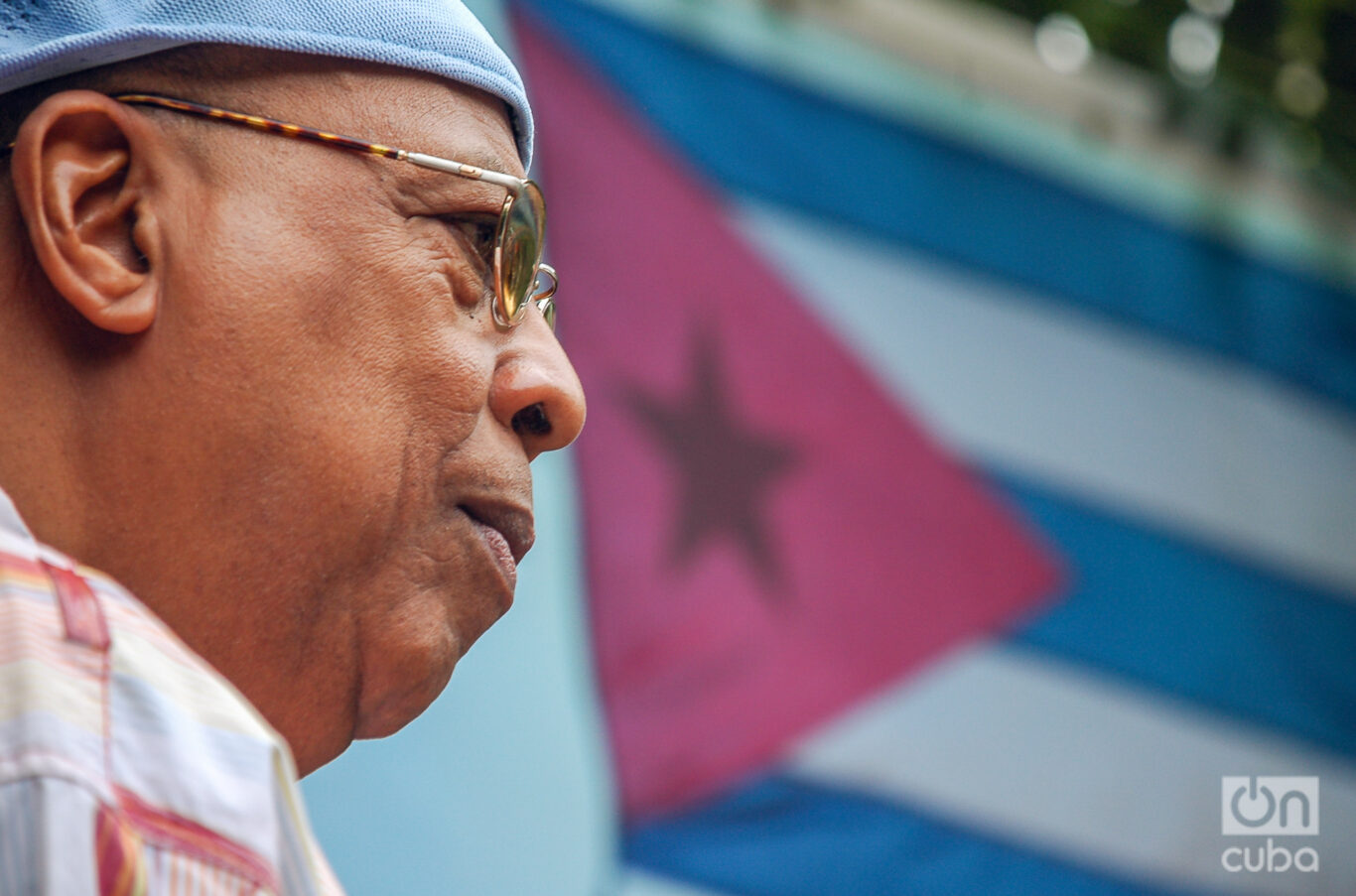
“When you see the different stages of Irakere and you notice how many generations passed through there, you understand the success of the group; if at a certain moment the ‘ball’ changed, he welcomed new people. He gets a lot of feedback from all that. Today, when you see the Royal Quartet, you perceive that Chucho is still aware of that update. I think that in recent years he has had great opportunities to demonstrate it.”
The last time Élsida enjoyed Chucho Valdés’ music live, she remembers, was at a concert at the Mella Theater in one of the Jazz Plaza concerts, before the pandemic. However, although she has not attended Chucho’s performances abroad, or the “Irakere 50” tour, the musicologist does not lose track of the pianist’s work, thanks to the benefits of the internet.
“It had to be Chucho who decided how a tribute to Irakere would be, because he is the creator of that project. He decided something fabulous: to rescue the friendship and musical relationship with Paquito and Sandoval. It is a wonderful thing, a fact that marks the career of all of them and I think that gives the tribute, too, an extra value. After so many years apart, the fact that they met again, perceiving that they still have a musical dialogue and that even though there are such young people in the team, they can understand each other, gives you an idea of why we made Los herederos in Cuba.”
The album, produced by EGREM, was recorded in 2021 and includes ten unmissable songs, including versions of iconic pieces by Irakere, others by Chucho Valdés and some original gifts for the maestro such as “Una melodía a Picho,” by César López. “Love is heard on that album,” Élsida González summarizes on the other end of the phone, from her home in the 10 de Octubre municipality, Havana.
Recorded in the turbulent times of the pandemic, “it is an excellent album because it was not made only to play the work of Chucho and Irakere. They were works made or arranged by people who worked in that musical phenomenon, such as Germán Velazco, Orlando Valle “Maraca,” César López, José Luis Cortés “El Tosco.” It was wonderful. That “Obatalá,” between Cucurucho Valdés and Geidy Chapman, was extraordinary. I know that Chucho listened to every piece, because César López sent them to him. At last year’s Grammy Awards, the EGREM delegation took some copies of the album and gave them to him. His children, Leyanis and Jessie Valdés, also participated in the material, and they spoke to him about what we had been doing.”
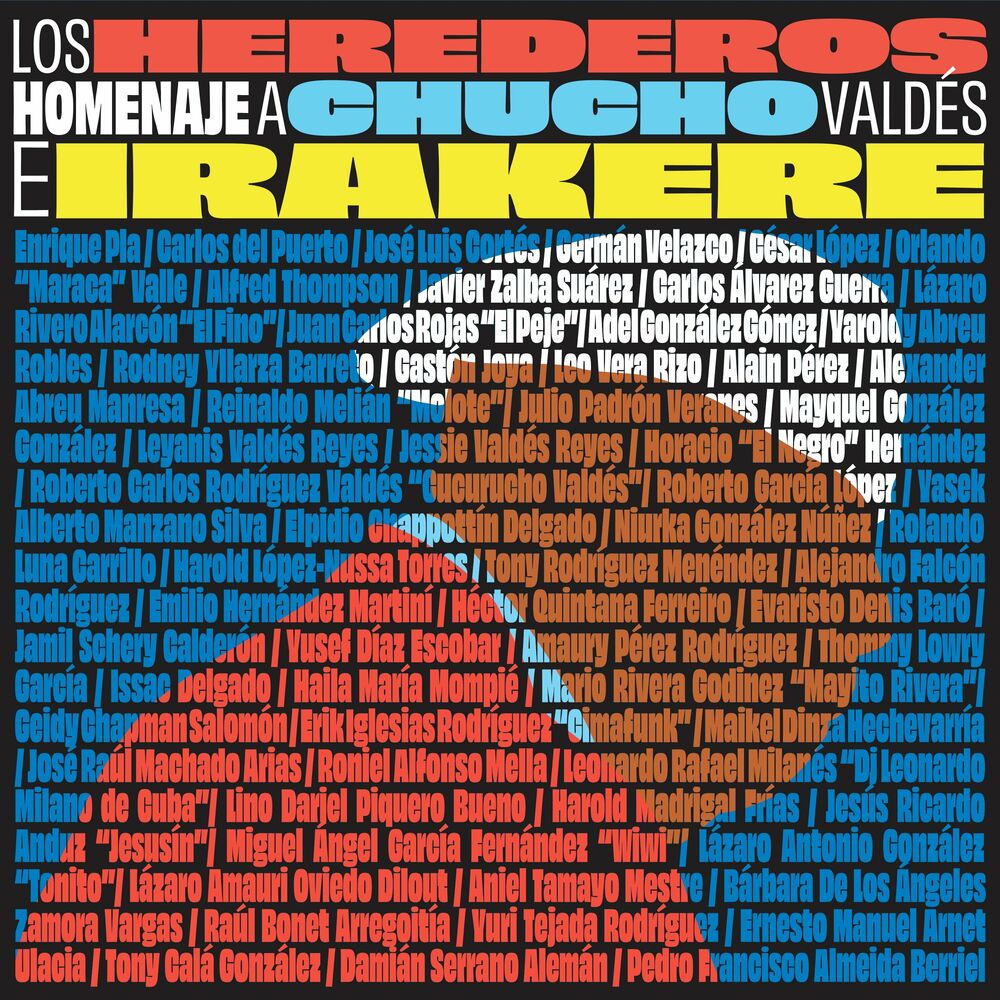
“It would have been lovely,” she reflects, “to have the possibility of doing Los herederos live concerts. I was very excited, but we always go through the same thing: we are a country with a great musical and artistic wealth, but very few resources, and sometimes we are left with truncated ideas. I celebrate every day the great Cuban music that I have experienced. Perhaps the opportunity to pay that tribute in Cuba that some dream of will come one day, although for that many wills must be united. But there is a tribute to Irakere in the world, and it is being directed by the person who created the group, the person who has to do it.”
For the moment, Élsida González and the general public celebrate the musical richness that seems unthinkable for a single person. But it is real, it is enjoyed, it is felt, it is danced to; and it is moving. “Chucho has an immense capacity, he has worked in all formats and has had time to do what he wanted. When he did the first things as a trio, he was very young; another very rich stage was the one he lived with the Afro-Cuban Messengers, with all those guys. All his stages have been great.
“And I will be very precise in what I am going to tell you: the Cuban people love Chucho Valdés very much. The era of Irakere is remembered by the generations that were able to experience it in dance music. He did dance music with the same rigor that he did jazz. People do not forget that. The concerts at the Amadeo Roldán are a mark in this country. No one will be able to erase it,” she reflects.
Before we say goodbye, Élsida reminds me that October 9 is also the birthday of Bebo Valdés (1918-2013). “There has been too much history between the two. From father to son, music. They say that glory fits in a kernel of corn, but everything Chucho has done, to detail it, is too much for that tiny space.”

